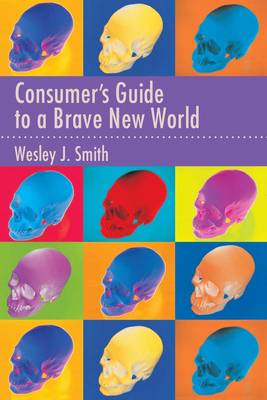
- Afhalen na 1 uur in een winkel met voorraad
- Gratis thuislevering in België vanaf € 30
- Ruim aanbod met 7 miljoen producten
- Afhalen na 1 uur in een winkel met voorraad
- Gratis thuislevering in België vanaf € 30
- Ruim aanbod met 7 miljoen producten
Zoeken
Omschrijving
Cloning researchers claim to have created an embryo that is mostly human, but also part animal. Biotech companies brag about manufacturing human embryos as "products" for use in medical treatments. Echoing long discredited master-race thinking, James Watson, who won a Nobel Prize for codiscovering the DNA double helix, claims that genetically enhanced people will someday "dominate the world." Events are moving so fast--and biotechnology seems so complicated--that many of us worry we can't have an informed opinion about these issues that are remaking the human future before our very eyes. Now Wesley J. Smith provides us with a guide to the brave new world that is no longer a figment of our imagination, but right around the corner of our lives. Smith starts with the basic questions. What are stem cells? What is the difference between embryonic stem cells and adult stem cells, and which are most promising for medical therapy? What does embryonic stem cell research involve and why is it so controversial? What is its relationship to human cloning? In addition to explaining the science of stem cells, this highly readable and carefully researched book reports on the gargantuan "Big Biotech" industry and its supporters in the universities and in the science and bioethics establishments. Smith reveals how this lobby works and how the ideology of "scientism," mixed with the lure of riches, threatens to impose on society a "new eugenics" that would dismantle ethical norms and compromise the uniqueness and importance of all human life. Consumer's Guide to a Brave New World presents a clear-eyed vision of two potential futures. In one, biotechnology will be a powerful tool to treat disease and improve the quality of our lives. But in another, darker scenario, we will be steered onto the antihuman path that Aldous Huxley and other prophetic writers first warned against fifty years ago, before science fiction became science fact.
Specificaties
Betrokkenen
- Auteur(s):
- Uitgeverij:
Inhoud
- Aantal bladzijden:
- 240
- Taal:
- Engels
Eigenschappen
- Productcode (EAN):
- 9781594034923
- Verschijningsdatum:
- 27/07/2010
- Uitvoering:
- Paperback
- Formaat:
- Trade paperback (VS)
- Afmetingen:
- 154 mm x 225 mm
- Gewicht:
- 381 g

Alleen bij Standaard Boekhandel
+ 44 punten op je klantenkaart van Standaard Boekhandel
Beoordelingen
We publiceren alleen reviews die voldoen aan de voorwaarden voor reviews. Bekijk onze voorwaarden voor reviews.











